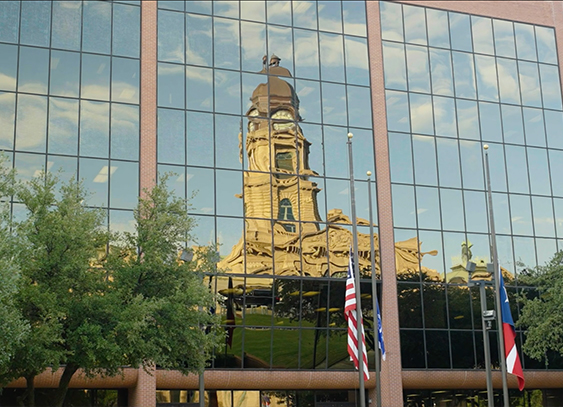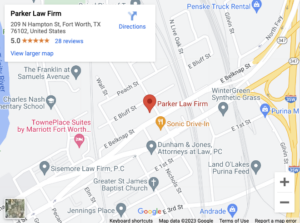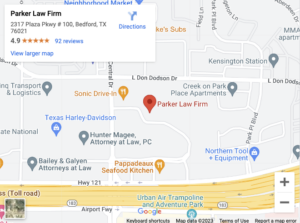What Is Adaptive Cruise Control, and Is It Safe?

Driving has come a long way in the past few decades. One of the newer technologies found in modern vehicles is Adaptive Cruise Control (ACC). This system promises to make driving easier and safer, but many drivers still wonder if it really works and if it’s completely safe.
In this article, we explain what adaptive cruise control is, how it works, and what drivers in Texas should know about using it safely.
What Is Adaptive Cruise Control?
Adaptive Cruise Control is an advanced version of regular cruise control. Traditional cruise control lets drivers set a speed while driving on the highway so they can take their foot off the gas pedal. It requires manual input from the driver to slow down or speed up.
While traditional systems maintain a constant speed, ACC adjusts the speed based on the flow of traffic. It detects the distance between your car and the car directly ahead of you. If the other car slows down, yours automatically slows down too. When the road clears, it speeds back up to your preset speed.
Some vehicles even have stop-and-go functionality, bringing the car to a complete stop and starting again when in heavy traffic. Many systems also work alongside lane-keeping assist to help the car stay centered.
How Does Adaptive Cruise Control Work?
Most adaptive cruise control systems are located behind the front grille or bumper. The system tracks the distance and speed of vehicles ahead by using a combination of sensors, radar, and onboard computers.
Here’s a simple breakdown:
- You set a cruising speed (like traditional cruise control).
- The system monitors the traffic in front of you.
- If another vehicle is detected, the system reduces your speed to a safe following distance.
- When the road clears, it returns to your preset speed.
It’s important to remember that adaptive cruise control does not drive the car for you. You still need to keep your hands on the wheel and stay alert to your surroundings.
Is Adaptive Cruise Control Safe?
This is a common question—and the answer is it can be. Adaptive cruise control can make driving safer in many situations, but it is not a substitute for careful driving.
The National Highway Traffic Safety Administration (NHTSA) states that ACC can prevent certain types of crashes. However, the technology has limitations.
ACC is only as safe and effective as the driver using it. If the driver becomes too relaxed or gets distracted may not react quickly enough to hazards or emergencies. For example, the system may not always detect a stopped vehicle or adjust to one that cuts you off abruptly.
Weather, such as heavy rain, fog, or snow, can also impact the sensors’ performance. ACC’s sensors and cameras rely on visibility to function. If the sensors are obstructed, the system might not activate, or it might fail and return control to the driver suddenly, with or without a warning.
Drivers must remain vigilant and always be ready to take over in the event of a system malfunction.
Driving Smarter with Adaptive Cruise Control
Adaptive Cruise Control is useful for long drives and stop-and-go traffic, especially on Texas roads. While it offers many benefits, it’s not foolproof.
Like all driving technologies, it works best when the driver stays alert, pays attention, and knows the system’s limits. Think of it as driver assistance, not autopilot.
If you have questions about accidents involving adaptive cruise control, a personal injury attorney could help.
Contact the Car Accident Lawyers at Parker Law Firm Injury Lawyers for a Free Consultation
If you or a loved one has been injured in an accident involving a driver who used adaptive cruise control, our Bedford car accident lawyers can help you understand your options, protect yourself, and hold the right parties accountable.
Whether a driver was using adaptive cruise control or not, you may be entitled to compensation. Parker Law Firm Injury Lawyers will explain your legal rights and fight for the compensation you deserve.
For more information, contact an experienced Bedford car accident lawyer at Parker Law Firm Injury Lawyers to schedule a free consultation today.
For more information, please contact an experienced personal injury lawyer at Parker Law Firm Injury Lawyers to schedule a free initial consultation today. We have convenient locations in Bedford and Fort Worth, Texas.
Parker Law Firm Injury Lawyers – Bedford
2317 Plaza Pkwy #100,
Bedford, TX 76021
(817) 503-9200
Parker Law Firm Injury Lawyers – Fort Worth
209 N Hampton St,
Fort Worth, TX 76102
(817) 839-3143


